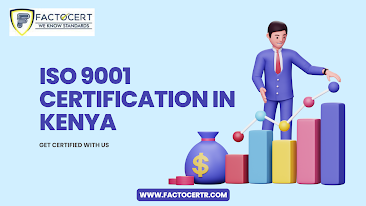Why is GMP Certification important in Kenya? How GMP Certification Improves Product Quality and Safety in Kenya?
GMP certification in Kenya is a critical aspect of the pharmaceutical industry in Kenya. Good Manufacturing Practice (GMP) is a set of standards and guidelines that ensure that products are consistently manufactured and controlled to meet the required quality standards. GMP certification guarantees that a manufacturing facility has met specific quality standards and can produce safe, reliable, and effective products. This article will discuss how GMP certification improves product quality and safety in Kenya.
The Importance of GMP Certification in Kenya:
GMP certification is essential for companies involved in the manufacturing, packaging, labeling, and distributing of pharmaceutical products. GMP certification is necessary to ensure pharmaceutical products' safety, efficacy, and quality. GMP guidelines provide a framework for maintaining consistent quality throughout manufacturing. GMP certification is also a requirement for exporting pharmaceutical products to other countries.
The Benefits of GMP Certification in Kenya.
Consistent Product Quality:
The consistent quality of products is crucial in the pharmaceutical industry as it ensures that patients receive the same quality of treatment every time. GMP certification ensures that the manufacturing process is standardized and the products produced are consistent in quality. Implementing GMP guidelines results in products that meet the required quality standards.
Product Safety:
GMP certification is crucial in ensuring the safety of pharmaceutical products. GMP guidelines require that the manufacturing process is clean and the products are free from contamination. Using clean, sterile equipment, raw materials, and packaging ensures safe products. GMP guidelines also require the manufacturing process to be validated to ensure the products are safe and effective.
Compliance with Regulatory Requirements:
GMP certification is required for companies involved in manufacturing pharmaceutical products. GMP guidelines are established by regulatory bodies to ensure that products are manufactured in compliance with local and international regulations. GMP certification ensures that companies comply with regulatory requirements and avoid legal repercussions.
Improved Efficiency:
GMP certification requires that the manufacturing process is well documented and standardized. This documentation ensures that the manufacturing process is consistent and reduces the likelihood of errors. Standardized processes also improve efficiency, reducing manufacturing costs and increasing productivity.
Improved Customer Confidence:
GMP certification is a stamp of approval indicating that a company can produce safe and effective products. GMP certification improves customer confidence in a company's products, increasing sales and revenue. Customers are more likely to purchase products from a company with GMP certification as they are assured of the product's safety and efficacy.
Competitive Advantage:
GMP certification in Kenya provides companies with a competitive advantage over their competitors. Companies with GMP certification are more likely to win tenders and contracts as they are seen as more reliable and trustworthy. GMP certification also opens up new markets for companies as it is required to export pharmaceutical products to other countries.
How GMP Certification Improves Product Quality and Safety in Kenya:
Clean and Sterile Manufacturing Processes:
GMP certification requires that the manufacturing process is clean and sterile. Using clean and sterile equipment, raw materials, and packaging materials ensures that the products are free from contamination. This reduces the likelihood of product recalls due to contamination, which can be costly for a company.
Documented and Standardized Processes:
GMP certification requires that the manufacturing process is well documented and standardized. This documentation ensures that the manufacturing process is consistent and reduces the likelihood of errors. Standardized processes also improve efficiency, reducing manufacturing costs and increasing productivity.
Validation of Manufacturing Processes:
GMP guidelines require the manufacturing process to be validated to ensure the products are safe and effective. Validation of the manufacturing process ensures that the products are produced consistently and meet the required quality standards. Validation also ensures that the manufacturing process is.
How to get GMP Certification in Kenya?
If you are having trouble putting this GMP Certification management system into practice or are unsure how to obtain GMP Certification in Kenya, get in touch with the best GMP Consultant at contact@factocert.com or through www.Factocert.com that our consulting experts can provide you with an effective project plan.
Conclusion:
GMP certification is an important standard for the pharmaceutical industry in Kenya. It helps companies ensure consistent product quality, maintain product safety, comply with regulatory requirements, improve efficiency, and acquire a competitive edge in the industry. By implementing GMP guidelines, companies can produce safe and effective products that meet required quality standards, improving customer confidence and increasing sales.
.png)


Comments
Post a Comment